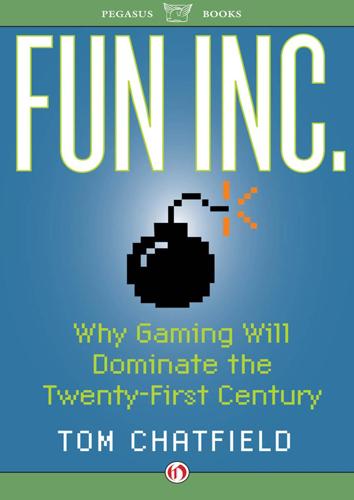
Fun Inc.
by
Tom Chatfield
Published 13 Dec 2011
People say that this virtual trade is the ultimate culmination of high capitalist economics, where all that is solid melts into air and money is based on nothingness. Yet, if you look at what is actually going on in these games, there is something much more solid there than what’s happening in financial markets. This virtual gold has real value because people have real attachments to it: and not just to the games, but to the other people that are in them.’ When someone in America pays $100 to a website to buy some virtual gold that has taken a Chinese person 100 hours to earn, it’s certainly difficult to treat the leisure of the one and the labour of the other as two different orders of activity. The American will even go out and do, for pleasure (and while paying for the privilege), almost exactly the same thing as the Chinese person has just done for a subsistence wage.
…
A typical ‘cottage gold farming’ outfit in China involves a team of workers living together in a dormitory and working in a rented room full of computers for an effective wage of 30 cents per hour. In this rented room, they will play a game – usually World of Warcraft, thanks to the size and affluence of its player market – for twelve hours a night, seven days a week. They will battle through precise areas and tasks again and again, pulling in virtual gold which will then be sold by their local employer to an online retailer for around $3 per hundred gold coins. Because the gold cannot exist independently of a game account, the sale will mean that both parties must have their own game characters, and will use the in-game player-to-player mailing system to transfer the gold.
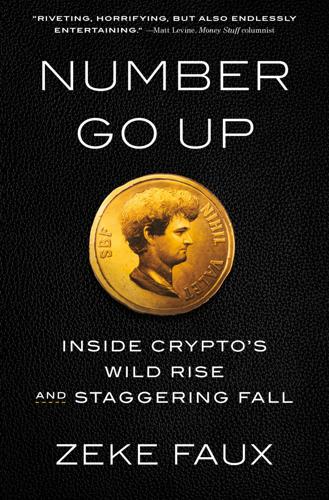
Number Go Up: Inside Crypto's Wild Rise and Staggering Fall
by
Zeke Faux
Published 11 Sep 2023
This was a new kind of online Dungeons & Dragons, where instead of going on a scripted solo mission, players dropped into a virtual world where wizards, druids, and thieves could team up to explore dungeons and battle monsters. Each victory yielded virtual gold, or rare items like swords or battle axes. The game consumed Pierce, who would play for as long as twenty-four hours at a time as the dark-elf wizard Athrex, using six computers at once to earn more loot. And he wasn’t the only one addicted to the endless quests. Players were so eager to win that a real-world market for in-game items sprung up. Someone who wanted the best gear could buy it on eBay and have it delivered by an in-game courier instead of spending hours killing monsters to earn virtual gold. For some players, particularly in poorer countries, this was a job opportunity: They could battle all day, earn virtual gold, and sell it for real money to better-off players seeking a shortcut.
…
For some players, particularly in poorer countries, this was a job opportunity: They could battle all day, earn virtual gold, and sell it for real money to better-off players seeking a shortcut. Video-game sweatshops sprung up, where workers clicked around the clock. These virtual serfs came to be known as “gold farmers.” One reporter who visited a gold farm in Nanjing, China, back then met a chain-smoking shirtless thirty-year-old Chinese man, working a twelve-hour overnight shift in a small, fluorescent-lit office space. He was playing as a staff-wielding monk, killing wizards for thirty cents an hour. In 2001, Pierce started a virtual-item brokerage called IGE, or Internet Gaming Entertainment.
…
Pierce’s IGE opened an office in Shanghai to get closer to Chinese gold farmers. Pierce has said he had as many as 400,000 farmers in his supply chain. By 2005, IGE was taking in more than $5 million a month. That year, former Goldman Sachs banker—and future Donald Trump consigliere—Steve Bannon was hired to help take Pierce’s virtual-gold company public. Bannon secured a $60 million investment in the company from Goldman Sachs and a group of investment funds. Pierce netted $20 million and stepped down. Bannon took over the company, which soon failed due to a more effective crackdown on virtual-item sales by game makers. Bannon became fascinated by how the gamers who opposed his company had been able to gather online and pressure big businesses to do their bidding—an insight he’d later share with Trump.
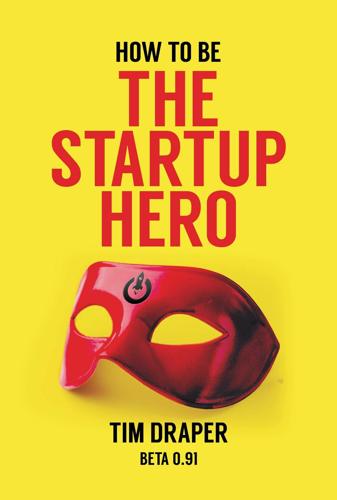
How to Be the Startup Hero: A Guide and Textbook for Entrepreneurs and Aspiring Entrepreneurs
by
Tim Draper
Published 18 Dec 2017
People would pay for virtual products! This revelation was an epiphany for me. It got me thinking that there was an amazing business in virtual currency coming. There were many efforts. FarmVille was a fun game that allowed people to buy and trade with virtual gold. People paid real fiat currency to buy more virtual gold. There evolved a market outside of the game for virtual gold. Some people would earn lots of it in the game and others would buy it from them to advance in the game. Something potentially important was beginning. My search for universal virtual currency was afoot. But it wasn’t until 2011 when I discovered Bitcoin.
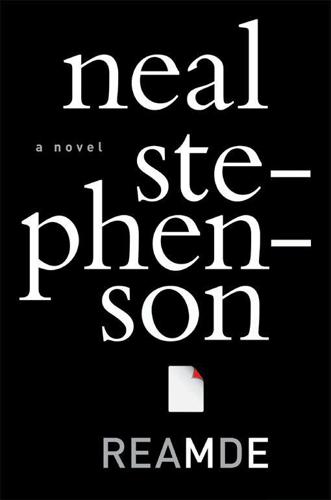
Reamde
by
Neal Stephenson
Published 19 Sep 2011
His weight crept up to near-fatal levels until he figured out the trick of playing the game while trudging along—very slowly, at first—on a treadmill. Like many serious players, Richard fell into the habit of purchasing virtual gold pieces and other desirables from Chinese gold farmers: young men who made a living playing the game and accumulating virtual weapons, armor, potions, and whatnot that could be sold to American and European buyers who had more money than time. He thought it quite strange and improbable that such an industry could exist until he read an article in which it was estimated that the size of the worldwide virtual gold economy was somewhere between $1 and $10 billion per year. Anyway, having reached a place where he had no more virtual worlds to conquer—his characters had achieved near-godlike status and could do anything they wanted—he began to think about this as a serious business proposition.
…
Gold, he learned, was considered to be a reliable store of value because extracting it from the ground required a certain amount of effort that tended to remain stable over time. When new, easy-to-mine gold deposits were found, or new mining technologies developed, the value of gold tended to fall. It didn’t take a huge amount of acumen, then, to understand that the value of virtual gold in the game world could be made stable in a directly analogous way: namely, by forcing players to expend a certain amount of time and effort to extract a certain amount of virtual gold (or silver, or diamonds, or various other mythical and magical elements and gems that the Creatives would later add to the game world). Other online games did this by fiat. Gold pieces were reposited in dungeons guarded by monsters.
…
The parochial turkey-eating customs of the United States were of no interest at all to the hyperinternational clientele that he and Richard shared. And even their American players, though they might have taken a few hours off yesterday for family observances, would be devoting most of today to questing for virtual gold and vicarious glory in the world of T’Rain, making this one of the heaviest days of the year for Corporation 9592’s servers and the system administrators who kept them running. But his mind kept drifting into the Blue. It was like a puzzle in a video game: he had to figure out what was really bothering him.
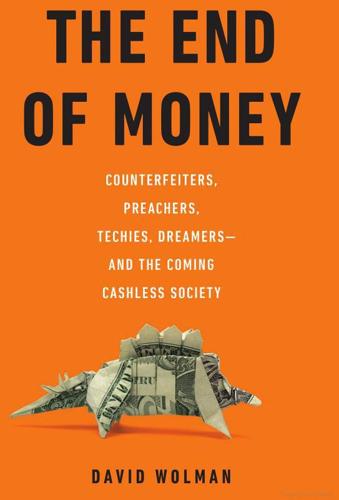
The End of Money: Counterfeiters, Preachers, Techies, Dreamers--And the Coming Cashless Society
by
David Wolman
Published 14 Feb 2012
But earning gold often requires patience with in-game tasks that some people consider tedious or boring, compared with other in-game exploits that require more gold. So why not just pay someone else to do the menial work? The industry is known as gold farming. Teens and twenty-somethings, usually in Asia, sit at computer terminals for hours, earning virtual gold for clients who might live 40 or 4,000 miles away. They settle up with an online payment, of course, denominated in some sovereign currency and often paid for with a credit card or via PayPal. The economics were interesting to Wang the computer scientist, but even more so were the details of some of the transactions.
…
Currency is simply that which is accepted as payment, and its legitimacy and global reach is only limited by the extent of that acceptability. Getting paid in airline miles suits a travel addict, just as getting paid in Disney Dollars may be exactly what parents planning an Orlando vacation need, especially if using them at the theme park confers some kind of discount. Getting paid in the virtual gold coins traded in World of Warcraft may be what your mechanic prefers for payment in exchange for car service, but the two of you don’t yet have the killer apps to make that transaction as seamless and trustworthy as today’s predominant methods of exchange. They are coming, though. As far as government authorities are concerned, your alternative currency adventures—whether with units of energy, goods in cyberspace, old-fashioned paper, or holographic representation of those giant stones from the Micronesian island of Yap—won’t be a problem as long as your currency doesn’t look like government-issued notes and coins.
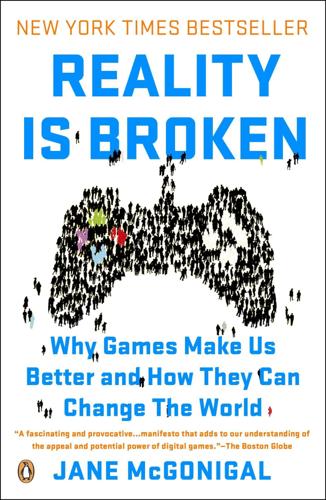
Reality Is Broken: Why Games Make Us Better and How They Can Change the World
by
Jane McGonigal
Published 20 Jan 2011
And because you get to craft the adventures from scratch yourself, you can customize the in-game rewards to make the least popular chores more attractive—hence, the battle in my apartment to clean the bathroom first. It’s worth a whopping one hundred XP. The more chores you finish, the more experience points and virtual gold you earn, and the faster you level up your online avatar’s powers. But Chore Wars isn’t just about tracking your avatar development; it’s also about earning real rewards. The game’s instructions encourage households to invent creative ways to redeem the virtual gold in real life. You could exchange the gold for allowances if you’re playing with your kids, or for rounds of drinks for roommates, or coffee runs for workmates, for example.
…
In the Land of the 41st-Floor Ninjas, for example, brushing out our Shetland sheepdog is “Saving the dog-damsel in distress from clumps and shedding,” and doing the laundry is “Conjuring clean clothes.” Whenever you complete one of these chores, you log in to the game to report your success. Every chore grants you a customized amount of experience points, virtual gold, treasure, avatar power-ups, or points that increase your virtual skills and abilities: plus ten dexterity points for dusting without knocking anything off the shelves, for example, or plus five stamina points for taking out all three kinds of recycling. And because you get to craft the adventures from scratch yourself, you can customize the in-game rewards to make the least popular chores more attractive—hence, the battle in my apartment to clean the bathroom first.
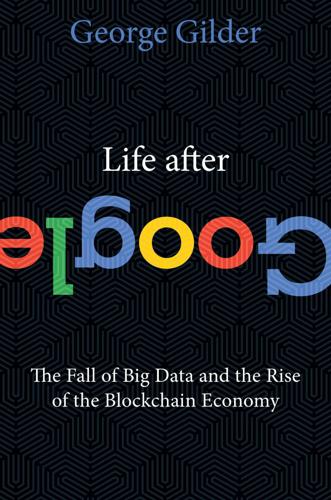
Life After Google: The Fall of Big Data and the Rise of the Blockchain Economy
by
George Gilder
Published 16 Jul 2018
To extract the gold and bring it intact to virtual market, they angle for underground mineral rights, purchase seismic surveying systems, dredging gear, hydraulic equipment, and transport facilities, and hire armed guards or even mobilize small armies. Millions of Chinese hackers take the lead, obsessively deploying petaflops—thousands of trillions of floating-point operations per second—to simulate the extraction process. Like gold standards through most of human history—look it up—T’Rain’s virtual gold standard is an engine of wealth. T’Rain prospers mightily. Even though its money is metafictional, it is in fact more stable than currencies in the real world of floating exchange rates and fiat money. Down here, for example, the U.S. government deploys its own computer power to fabricate dollars by the trillions out of thin air to pay its bills.
…
Centered in China, where exporting renminbi is heavily restricted, there are a number of possibly sinister but nonetheless effective “exchanges” and brokers and conversion facilities that translate virtual wealth into terrestrial wealth. Not only does the company that owns T’Rain legally make dollars and renminbi galore and produce billions of dollars of capital gains for its shareholders, but “miners” manage to translate their virtual gold into millions of real dollars and yuan on earth. They can even use it to buy gold bullion. Reamde’s plot revolves around these phase transitions between the virtual and real worlds. That’s Stephenson’s imagination at work. But think about it. This is not really a novel. We are living it, printed out in 3D.
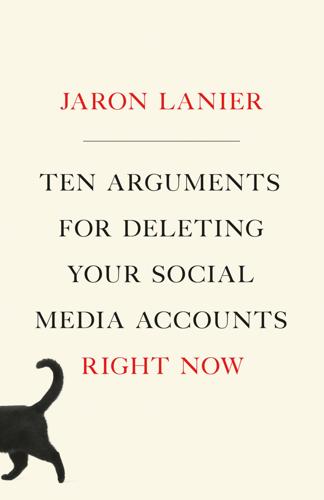
Ten Arguments for Deleting Your Social Media Accounts Right Now
by
Jaron Lanier
Published 28 May 2018
To be clear, there are two levels of judgments going in the BUMMER machine. One kind can be understood by humans, and might be seen by humans. The internet is filled with opinions about you, you personally, right now. How many friends, followers? Are you hot? How many points have you earned? Did you get a virtual gold star or maybe some virtual confetti from a store because you convinced others to use the same store? The other level of judgment is based on mathematical correlations that people might not ever see or be able to interpret. These are sometimes called intermediate-layer interpretations because of how they are generated within machine learning algorithms.
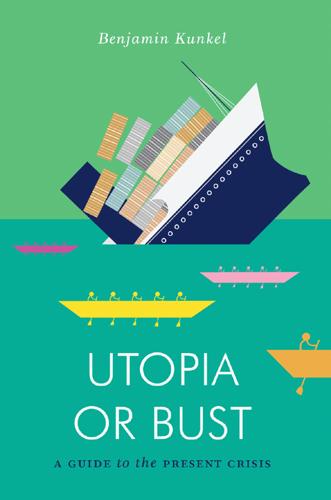
Utopia or Bust: A Guide to the Present Crisis
by
Benjamin Kunkel
Published 11 Mar 2014
Before 1914, as Coggan notes, “Britain’s gold reserves rarely exceeded £40 million, a figure that was only 3 percent of the country’s total money supply … Had foreign creditors demanded the conversion of their claims into gold, Britain could not have met the bill.” After the war, and the fitful return to gold, Keynes argued that it no longer made sense to distinguish between “commodity money” and “representative money,” or the metallic and the virtual. Gold, having “ceased to be a coin,” had become “a much more abstract thing,” with at most a vestigial part in the regulation by central banks of “managed representative money.” Graeber wouldn’t dispute this—he continually emphasizes that money is always a political, never a truly mineral phenomenon—but it does put in doubt the usefulness of differentiating capitalism from prior modes of production, or sorting out eras within its history, according to the role of bullion.
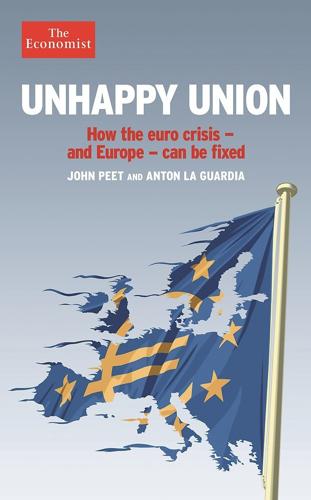
Unhappy Union: How the Euro Crisis - and Europe - Can Be Fixed
by
John Peet
,
Anton La Guardia
and
The Economist
Published 15 Feb 2014
He urged the Europeans to act decisively, and concentrated his efforts on trying to convince Germany to enhance the European firewall. If the ECB persisted in refusing to intervene in an unlimited manner (for example, by issuing the EFSF a banking licence), how about contributing the Europeans’ unused allocations of “special drawing rights”? SDRs are created by the IMF as a reserve asset, a sort of virtual gold, and their supply was greatly boosted in 2009 to give countries extra liquidity in the financial crisis. Now the tables were turned on Merkel. The idea was firmly blocked by the Bundesbank, which held Germany’s allocation and regarded their use as tantamount to printing money. The German chancellor said she might relent if Italy accepted an IMF precautionary programme, but the idea did not fly.
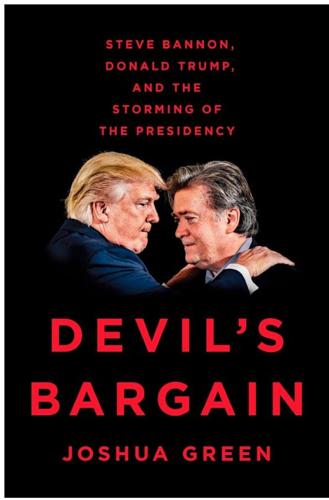
Devil's Bargain: Steve Bannon, Donald Trump, and the Storming of the Presidency
by
Joshua Green
Published 17 Jul 2017
Many gamers hated the practice and considered it a form of cheating. They flooded gaming boards with anti-Chinese vitriol to protest farmers and their sponsors. Pierce knew IGE needed legitimacy. So he enlisted Bannon to raise capital, hoping game publishers would eventually agree to license the practice. Bannon pitched the idea that the currency market for virtual gold wasn’t all that different from its real-world counterpart—and landed $60 million from Goldman Sachs and other investors. Their timing turned out to be terrible. Rather than agree to a licensing deal, Blizzard, under pressure from its customers, started shutting down the accounts of suspected gold farmers and sellers.
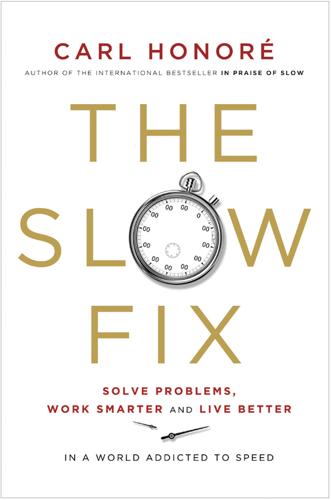
The Slow Fix: Solve Problems, Work Smarter, and Live Better in a World Addicted to Speed
by
Carl Honore
Published 29 Jan 2013
Chore Wars is an online game that turns housework into something you might actually want to do. To play, you form a virtual group made up of people who share the same real-world space – a household, say, or an office or social club. Each player chooses an avatar and then together you draw up a list of chores to be performed in return for prizes ranging from virtual gold to points that enhance your avatars. You can also assign real-world rewards in return for that digital treasure: a trip to the movies for the children, perhaps, or a foot massage for a partner. Like all role-playing games, Chore Wars gives reality an epic and heroic twist. Chores are “adventures.”
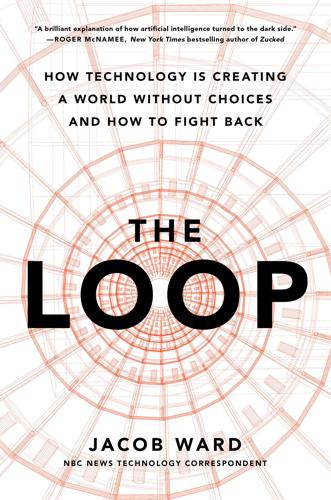
The Loop: How Technology Is Creating a World Without Choices and How to Fight Back
by
Jacob Ward
Published 25 Jan 2022
If we wanted to learn the value of a potentially compulsive gambler to a social casino gaming company, we’d only need to know how much Facebook charges social casino companies each time a customer downloads an app. In the 2015 decision against Edelson’s client, the judge wrote that even if he decided to award damages to her, he’d be in the “unenviable position of pricing the conversion from virtual gold and chips to virtual wood and rock.” He went on to write that “such whimsical undertaking may spark the imaginations of children and ardent game enthusiasts, but it can have no place in federal court.” But the truth is that Machine Zone, like social casino companies Playtika and DoubleDown and Big Fish, knows exactly what our time is worth.
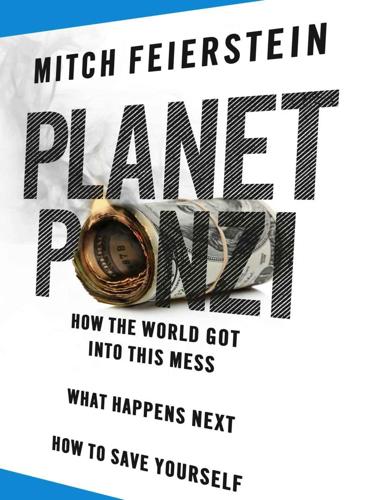
Planet Ponzi
by
Mitch Feierstein
Published 2 Feb 2012
Those profits would last as long as your gold deposits remained rich and easily accessible. You wouldn’t have done anything unethical in exploiting them; you’d just have been very lucky. And you don’t need to stumble across an oil well or a gold mine to strike it rich. Google and Microsoft are examples of firms smart enough and lucky enough to have created virtual gold mines of their own. The nature of computer operating systems and search engines appears to favor the largest player. You couldn’t say that either firm is immune from competition, just that the forces of competition don’t work to drive down prices in the way that they do for more ordinary markets, like the ones for pressed steel, or cookies, or handsaws, or haircuts.
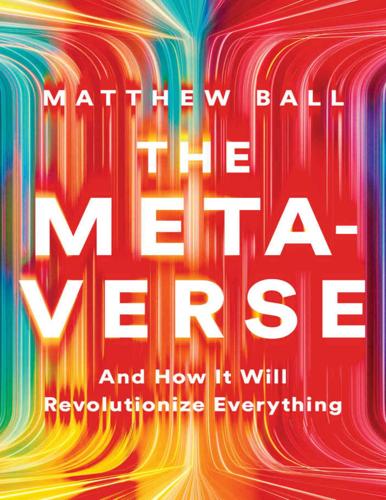
The Metaverse: And How It Will Revolutionize Everything
by
Matthew Ball
Published 18 Jul 2022
There are no signs that this level of spending will do anything but increase in the near future. Constantly remaking these objects for a new file format or engine is financially impractical and often wasteful; the greatest attribute of a digital “thing” is that it can be endlessly re-used without additional cost. Interchange solutions are already emerging to tap into the “virtual gold mine” of previously created and fragmented asset libraries. A good example is Nvidia’s Omniverse, which launched in 2020 and enables companies to build and collaborate in shared virtual simulations built upon 3D assets and environments from different file formats, engines, and other rendering solutions.
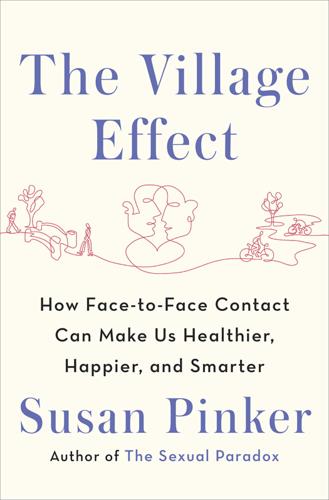
The Village Effect: How Face-To-Face Contact Can Make Us Healthier, Happier, and Smarter
by
Susan Pinker
Published 30 Sep 2013
One of them, Pull-Ups iGo Potty, sponsored by Kimberly-Clark, has an insidiously memorable soundtrack: “I know how to use the potty, ’cause I know my stuff. I know how to use the potty, ’cause I’m big enough! No more diapers, no more wet pants, no more icky poo!” The app reminds the toddler to use the potty and then, when she does, rewards her with a tinny “Good job!” and a virtual gold star, followed by virtual applause (the adult must key in the information, of course). Featuring cartoon objects that float among airborne wads of toilet paper, the app also helpfully reminds users not to throw ice cream cones or hamburgers down the toilet. Without any evidence that they work, parents download these apps onto their mobile devices and then pass them to their kids, hoping to offload one of the most detested jobs of early parenthood.
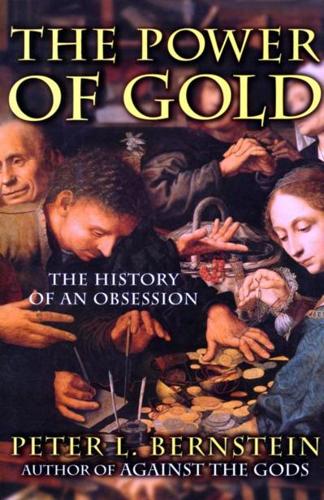
The Power of Gold: The History of an Obsession
by
Peter L. Bernstein
Published 1 Jan 2000
That is, the Bank should ignore the reality of the pure paper currency system that had been forced upon the nation and respond instead to the unambiguous signals provided by increases in the price of gold and the weakness of the pound in the foreign exchanges. Upon the appearance of those signals, the Bank should curtail its credit activities, thereby restraining the growth in the money supply, just as it had done under identical conditions in 1783, 1793, and 1797. The Bank should manage its affairs under the restraints of a virtual gold standard, to put it in today's lingo. Ricardo would emphatically endorse this view in his 1816 tract on the high price of bullion. He asserted that "fIf the Directors] had acted up to the principle which they have avowed to have been that which regulated their issues when they were obliged to pay in specie ... we should not have been exposed to all the evils of a depreciated, and perpetually varying currency"35 (italics in original).
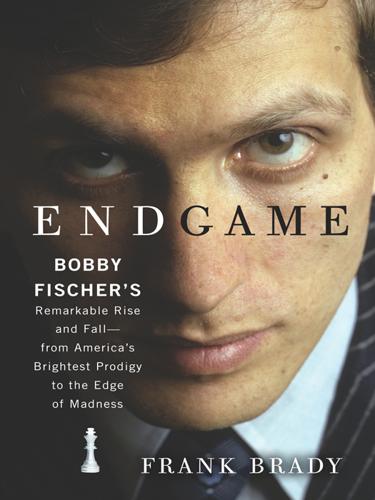
Endgame: Bobby Fischer's Remarkable Rise and Fall - From America's Brightest Prodigy to the Edge of Madness
by
Frank Brady
Published 1 Feb 2011
If Bobby had won that game, he would have been the tournament’s clear winner, a half point ahead of Bisguier. Bobby replied that he had more to gain than lose by the decision. He’d assumed that Bisguier would either win or draw his own game, and if so, Bobby would have at least a tie for first place. That meant a payday of $750 for each player, a virtual gold mine for Fischer. Recognizing Bobby’s greater need for money than the capture of a title, however prestigious, Bisguier noted: “Evidently, his mature judgment is not solely confined to the chessboard.” The tournament director continued to make calculations, finally looking up and declaring that Bisguier had won.
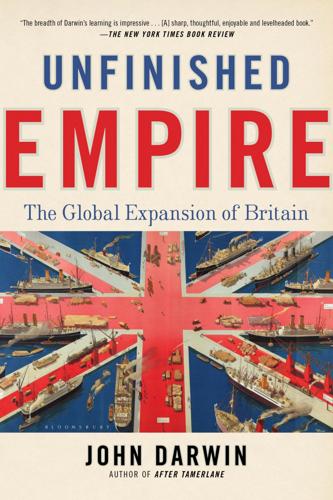
Unfinished Empire: The Global Expansion of Britain
by
John Darwin
Published 12 Feb 2013
It came in all sorts: governmental reports and statistics; charts, maps, surveys and plans; diplomatic correspondence; the semi-official record of embassies, like Lord Macartney’s to Beijing in 1792–3; the propaganda of colonization companies, such as the New Zealand Company, enticing investors and emigrants; the accounts of explorers, like Mungo Park, whose description of West Africa was compiled from notes he had hidden in his hat, or Richard Burton, whose dangerous journey to Mecca in disguise was sponsored by the Royal Geographical Society; the journals of scientific travellers such as Sir Joseph Banks (who had sailed with Cook), Charles Darwin or Alfred Russel Wallace; the uplifting experience of pioneer missionaries (the most famous was David Livingstone’s 1857 Missionary Travels and Researches in South Africa, an enormous bestseller); overseas newspaper coverage, particularly the columns of special correspondents for whom colonial wars were a virtual gold rush; the stream of trophies and artefacts, some bought, some looted, some animal, some human, put on public display; and, not least, the vast gallery of pictorial images, the result of official commissions (Cook and Macartney had taken artists with them; the East India Company had employed William Hodges) or of wandering freelance artists, looking for subjects and fame.
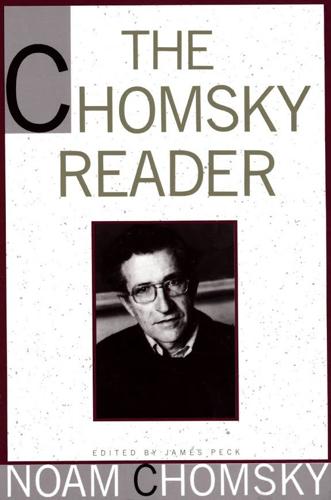
The Chomsky Reader
by
Noam Chomsky
Published 11 Sep 1987
.: Yale University Press, 1967); Tam Vu and Nguyen Khac Vien, A Century of National Struggle: 1847–1945 (Hanoi, 1970); David G. Marr, Vietnamese Anti-colonialism: 1885–1925 (Berkeley: University of California Press, 1971); and Long, Before the Revolution. 38. Colin S. Gray, “What RAND Hath Wrought,” Foreign Policy, vol. 1, no. 4 (1971). 39. “The lucrative US presence … created a virtual gold mine of wealth which is directly or indirectly syphoned off and pocketed by the officials.” Compare the situation since. From 1966 through 1971, United States economic assistance to South Vietnam averaged over $600 million per year; the capital flow from South Vietnam is about one-third of this.
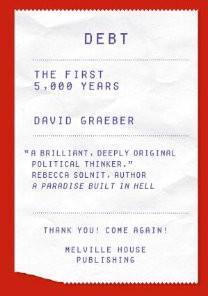
Debt: The First 5,000 Years
by
David Graeber
Published 1 Jan 2010
It stands at the pinnacle of a great, emerging global bureaucracy—the first genuinely global administrative system in human history, enshrined not only in the United Nations, the World Bank, and the World Trade Organization, but also the endless host of economic unions and trade organizations and non-governmental organizations that work in tandem with them—created largely under U.S. patronage. All of them operate on the principle that (unless one is the United States Treasury), “one has to pay one’s debts”—since the specter of default by any country is assumed to imperil the entire world monetary system, threatening, in Addison’s colorful image, to turn all the world’s sacks of (virtual) gold into worthless sticks and paper. All true. Still, we are speaking of a mere forty years here. But Nixon’s gambit, what Hudson calls “debt imperialism,” has already come under considerable strain. The first casualty was precisely the imperial bureaucracy dedicated to the protection of creditors (other than those that were owed money by the United States).